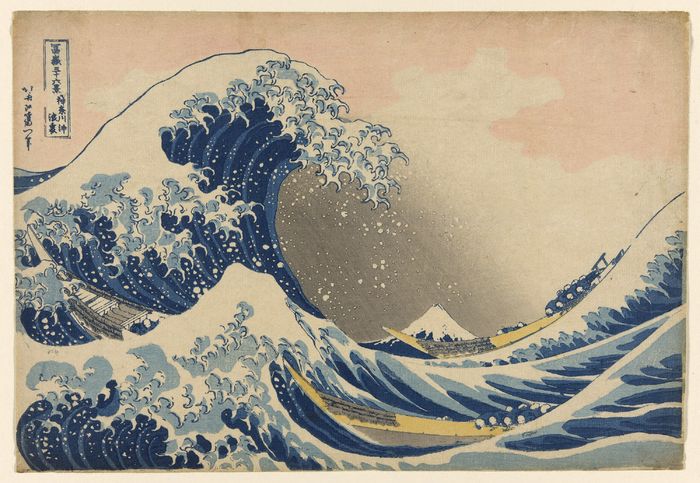‘Unfolding cultural catastrophe’: Art and the war in Ukraine
Matthew Bessant discusses the current threat to Ukrainian artistic heritage and what we in the West can do to help

When we think of artworks lost in conflict, we might think of Raphael’s Portrait of a Young Man or Courbet’s Venus and Psyche, both of which were destroyed during the onslaught of the Second World War. We might not think, however, of the paintings of Maria Prymachenko, twenty-five of which were destroyed only days ago in a fire started by Russian troops in the small town of Ivankiv, Ukraine. Praised by the likes of Picasso as an ‘artistic miracle’, Prymachenko was a folk-artist considered fundamental to the Ukrainian cultural identity, her saturated gouaches and watercolours shaping something of her nation’s bright individuality. With the destruction of so many of her works, a part of that identity is now lost.
“It would make sense for them to destroy art that shows our Ukrainian heritage”
James Cuno, of the J. Paul Getty Trust, has described this loss as the beginning of an ‘unfolding cultural catastrophe’, and has commented that an oft-forgotten ‘target of war’ is the destruction of ‘a society by [the] erasing [of] its memory’. With the works of artists such as Taras Shevchenko and Alexander Bogomazov at risk, museum workers throughout Ukraine rush to protect these emblems of their cultural history – last Thursday, workers at the National Museum of the History of Ukraine spent twelve hours moving its collection into storage, while barbed wire fences have been erected around the Fine Arts Museum in Odessa, its paintings hidden in the building’s basement.
In the wake of events in Ivankiv, the international arts community has made preliminary steps in condemning these attacks on cultural property, with UNESCO releasing a statement calling on Russian forces to respect the ‘1954 Hague Convention for the Protection of Cultural Property in the Event of Armed Conflict’. Yet, art-historian Oleksandra Kovalchuk believes that ‘it would make sense for them to destroy art that shows our Ukrainian heritage, that shows we have different history, that we’re different, not Russian’, and thus it is likely such calls for cultural preservation will go ignored. Thus, as museum officials endeavour to protect their artistic property from within the conflict zone, it is imperative that we in the West consider what actions we can take to support them, and to ensure that the Ukrainian cultural identity is not further erased.
“The more aware we are of Ukraine’s artistic heritage, the more difficult we make its eradication”
The answer is, of course, not to remove the works of Shevchenko and Bogomazov from their homeland; as the officers of the ’Monuments, Fine Art, and Archives Programme’ made clear in the 1940s, the cultural risks of conflict do not warrant ‘the removal for any reason of a part of the heritage of any nation’, for this perpetuates a kind of cultural imperialism which does nothing for a vulnerable state. Rather, we must spotlight Ukrainian artistic culture and restrict Russia’s involvement in the international arts community. The latter is simple, with many Russian artists and curators having themselves already acted in solidarity with Ukraine by pulling out of the Venice Biennale. But how can we in Britain spotlight Ukraine’s artistic heritage in a way that actively upholds its cultural identity?
Olesia Ostrovska-Liuta, director of the Mystetskyi Arsenal National Art and Culture Museum in Kyiv, asks that we ‘write and share joint public statements as cultural and civil organisations’ and that we use social media to share information with the hashtag ‘#StandWithUkraine’; she asks that we engage with Ukraine’s artistic heritage and ‘highlight contemporary Ukrainian art’ in our public galleries. While Ukraine remains under siege, its cultural identity is increasingly at risk of erasure, and thus it is the duty of our own art institutions to show solidarity with those in the conflict zone. The more aware we are of Ukraine’s artistic heritage, the more difficult we make its eradication.
 News / Robinson May Ball rejects hundreds of worker applications in shift to more ‘inclusive’ event7 March 2025
News / Robinson May Ball rejects hundreds of worker applications in shift to more ‘inclusive’ event7 March 2025 News / Vet School saved?7 March 2025
News / Vet School saved?7 March 2025 News / Cambridge spends over £12M on academic journal access7 March 2025
News / Cambridge spends over £12M on academic journal access7 March 2025 News / Caius threatened with legal action after accommodation fiasco7 March 2025
News / Caius threatened with legal action after accommodation fiasco7 March 2025 Comment / Are May Balls worth their budgets?7 March 2025
Comment / Are May Balls worth their budgets?7 March 2025






